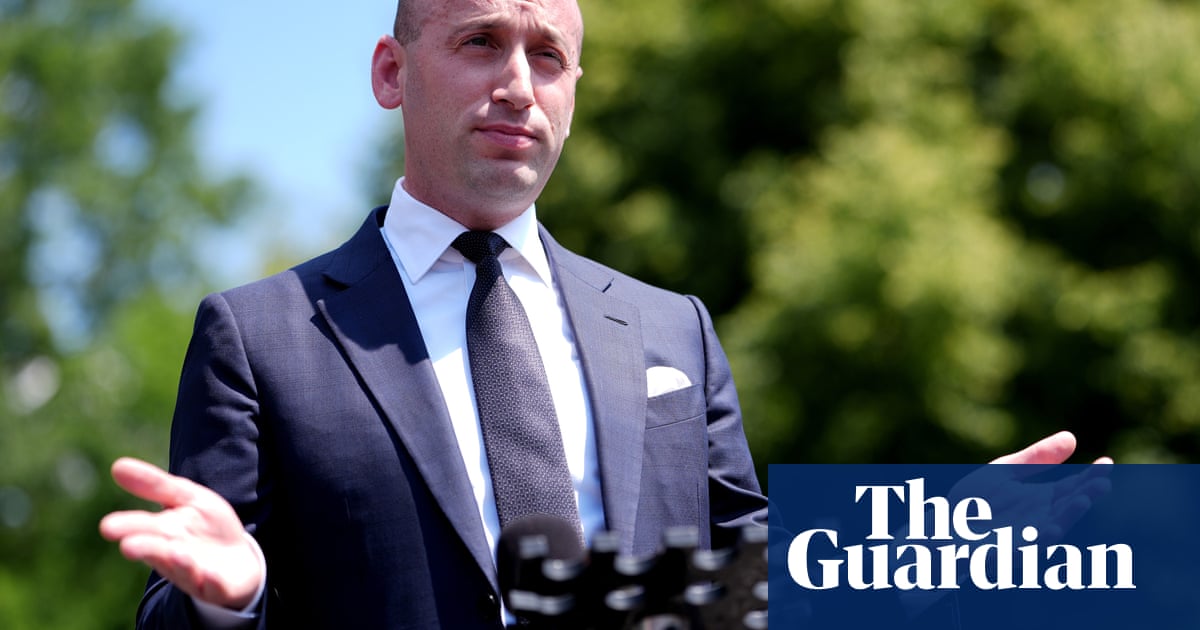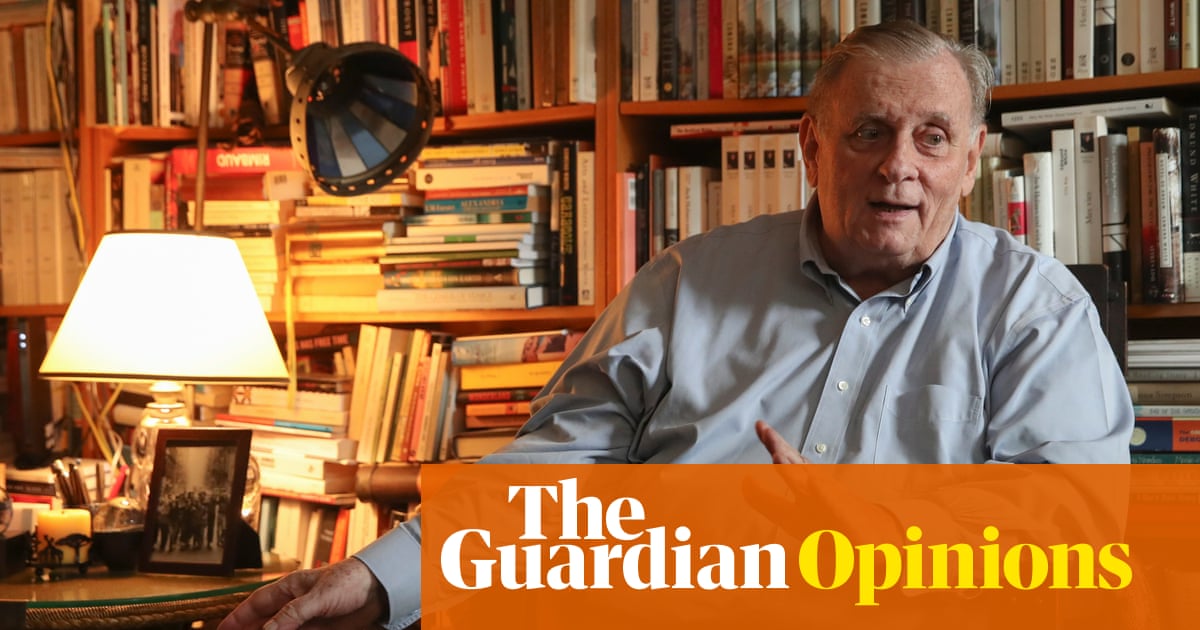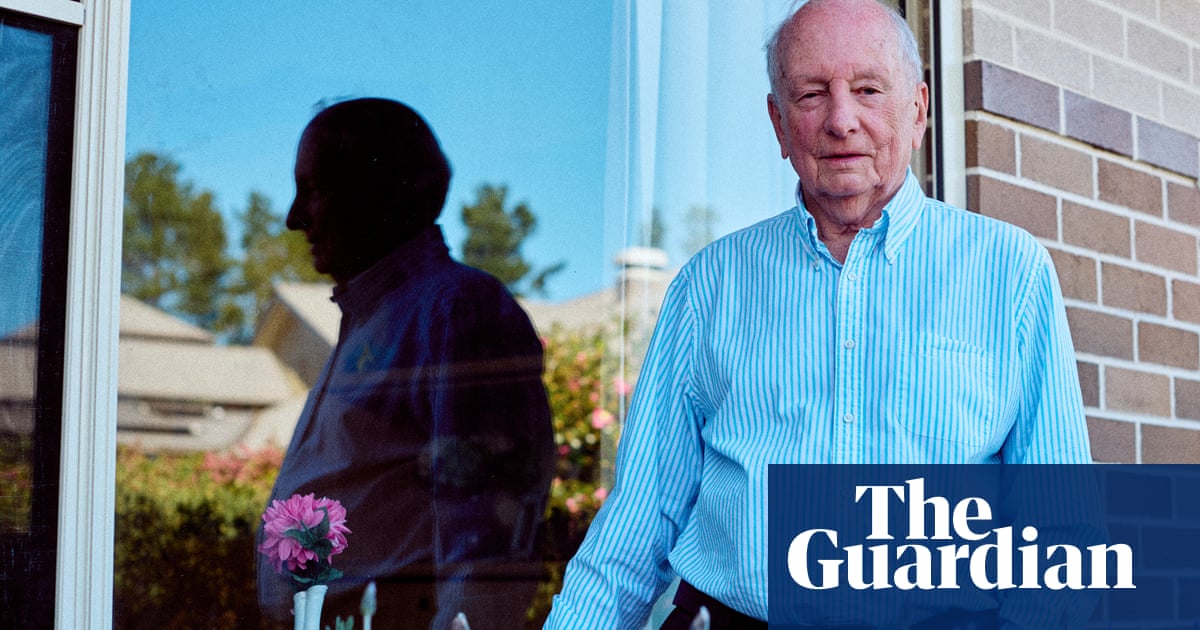The playwright Patricia Cornelius and the director Susie Dee have been in a collaborative creative partnership for decades, producing some of the most searing and politically provocative works of theatre Australia has seen.
You might think a new play about Julian Assange and the vagaries of global geopolitics would inspire them to new heights. But, while there are flashes of brilliance throughout, Truth fails as an act of agitprop and is hard going – and faintly dispiriting – as an act of drama.
We don’t get a single Assange here but five of them (Emily Havea, Tomáš Kantor, James O’Connell, Eva Rees and Eva Seymour), arranged as in a criminal lineup. While this could have encouraged five different – maybe contrasting or even contradictory? – viewpoints of the character, in practice they form a united chorus of complaint. Grievance seems to be Cornelius’s central motivation, which she grinds like teeth.
We start (almost) at the beginning, when Assange was a nerdy kid with a computer and some keen hacking skills. Melbourne may have housed him but Assange was a globalist from the start, connecting with fellow hackers online to infiltrate and “explore” highly sensitive computer systems around the world, including Citibank and (allegedly) the Pentagon. They didn’t disrupt or corrupt these systems; they just “had a look around”. But it gave Assange a taste for subversion, the fulcrum of which was WikiLeaks.

We know this story but Cornelius drags us through the main events anyway, occasionally elucidating details – the specifics of the sexual assault charges in Sweden are illuminating – but rarely providing any nuance or ambiguity. The playwright has decided Assange is an exterminating angel of the left and goes to great lengths to enforce this reading; any facts that might disrupt the narrative are jettisoned or smoothed over. It’s the dramatic equivalent of a raised fist, fixed and impermeable.
When Truth ventures away from Assange and into the case studies of Chelsea Manning and Edward Snowden, it loosens its grip a little on the propaganda and lets in some light. Rees is brilliantly vulnerable as Manning, stripped and locked in a cell, and Kantor is compelling as the impervious young man forced into exile in (of all places) Russia.
Best of all, and perhaps an indication of the true potential of this material, are two scenes utterly unrelated to Assange but pulsing with thematic power. One involves a young person grappling with their parents’ silence over the sexual abuse of their son by the local priest. The other is about a woman cowered by the surveillance of her ex, who watches her every movement from the cameras inside her house. These moments crystallise the stakes and carry emotional weight, things that are sorely lacking in the Assange story.

While much of Truth is a slog, dour and repetitive, many aspects of the production are sharp and articulate. Dee directs with great poise and precision, innovative in her use of space and attuned to shifts in mood and pacing. Matilda Woodroofe’s set may be cold and confronting, with shades of Guantánamo, but it’s capable of variation and visual impact. Meri Blazevski’s video design is terrific, bold and intrusive as Big Brother. And Paul Jackson’s lighting is arresting (although surely we’re done with blinding searchlights, one of contemporary theatre’s most tired cliches?)
after newsletter promotion
The script may flatten the characters into declamatory ciphers but the actors bring colour and depth to them anyway. O’Connor is the rage and Havea the suavity, Seymour the bewildered one and Kantor the thrilled iconoclast. Rees is fascinating to watch, alternately hounded and resolute, a dogged journalist in full Watergate mode. As an ensemble, they crackle and surge.
Truth fancies itself a grenade lodged at the heart of the audience, an attempt to reclaim Assange as an unambiguous symbol of resistance. But the man and his legacy are far murkier. One could argue his dumping of secrets and subsequent indifference of the impact on people has been far more helpful to the right than the left – something Cornelius refuses to countenance.
Agitprop should be an act of persuasion, but this unashamedly old-fashioned protest piece seems unlikely to shift opinion one iota. The truth continues to slip through our feeble grasp.
-
Truth is at the Malthouse’s Merlyn theatre until 8 March

 3 months ago
61
3 months ago
61

















































